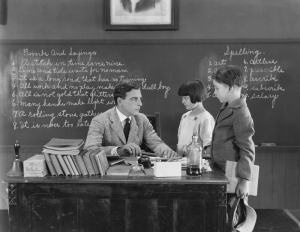
The takeaway:Deliberate purposeful practice wins the day–not talent. So say FSU’s renowned Anders Ericsson along with Robert Pool in the book Peak: Secrets from the New Science of Expertise. Whether you want to pen the great American novel, improve your golf game, or learn to draw, deliberate practice is the path—no talent required.
$$$
From the Beatles to Mozart, from Tiger Woods to Tom Brady, fantastic feats are not the result of talent but of practice—deliberate purposeful practice.
Do you know some child prodigies or kids who excelled on the playground, or in the classroom? Fugetaboutit! It might be interest. It could be motivation. But when the final tally’s in, it won’t be “talent.”
So says renowned Florida State University researcher Anders Ericsson and co-author Robert Pool in the book:
Peak: Secrets from the New Science of Expertise
Ericsson has built an international career around studying expert performance in a variety of fields. He’s weighed in on the likes of memory, music, and sports—to name a few. In short, he’s a renowned expert on what it takes to be an expert.
If you want to continue growing in your retirement years, Anders book would suggest deliberate practice will get you there. In fact, he promises that deliberate practice is for “…anyone who wants to “learn how to
- …draw, write computer code, juggle, play the saxophone, pen ‘the Great American Novel;
- …improve their poker game, their softball skills, their salesmanship, their singing;
- …take control of their lives and create their own potential and not buy into the idea that this right here, right now, is as good as it gets.”(p. 146)
But he also warns that we won’t reach that promise if all we do is engage in “naïve practice.”

Who knew most of my life I’ve been naively practicing dance? No wonder I had so much fun with little improvement. WooHoo!
Naïve practice
Naïve practice is doing something repeatedly and expecting that the repetition alone will improve our performance.
After attaining a certain baseline level of competence, most people never improve professionally or in their personal endeavors.
Essentially, they don’t become better psychologists, surgeons, bakers, or candlestick makers. He says research shows most of us reach a certain level and never advance beyond it. It seems we’re not taught continuous improvement through deliberate practice.
Deliberate or purposeful practice is the kind of practice needed to continue building competence and achieve excellence.
Deliberate purposeful practice

I’m so not having fun with this deliberate practice. (I’m gonna be awesome!)
After a career studying practice techniques among champions in a variety of disciplines, Ericsson outlines the specific practice steps required to achieve eminence. It’s not fun. It’s work. And if you don’t feel uncomfortable, you’re doing it wrong.
If you’re having fun and don’t feel uncomfortable, you’re doing it wrong.”
These techniques are called deliberate or purposeful practice. Ericsson originated this concept decades ago. Today, there’s a lot of variation in print and digital media as to what deliberate purposeful practice is. Boomer, here it is from the horse’s mouth.
For deliberate purposeful practice, you must:
- have a highly specific goal. If your goal’s not specific, you won’t know if your practice session methods are effective.
- break the goal down into small achievable steps.
- focus. You must apply your full attention.
- get feedback—preferably from a coach or instructor who can point out where you need to improve. If that’s not possible, you can study Internet videos and assess how what you’re doing compares to what the experts are doing.
- get out of your comfort zone. Ericsson says this is the most important part of deliberate purposeful practice. This practice should *not* be fun. It should be so hard it pits you in a battle against yourself to master it.

With deliberate purposeful practice, Ericsson recommends outside help when possible.
Items 4 and 5 are the real killers. That’s why some folks get help from a teacher, mentor, trainer, YouTube guru, or coach.
Side note: yours truly and deliberate purposeful practice
After reading this book, and spending my youth in the cheap seats at Laker games, I decided I wanted to add shooting basketballs to my fitness regimen. At 66, I’d never played basketball. In eight years, I’d never seen a woman on the court at my gym, only men. And clearly, with practice, I could shoot just as lousy as they did.
My specific goal was to land a ball in the basket anywhere within 12 feet of the hoop. My small achievable steps were to stand as close to the rim as physically possible and start shooting. After 2 million tries, when the ball started to reliably drop, I’d take a step outward and begin the process again.
I focused by showing up at the gym at 5 a.m., when my extroverted night owl self would have zero temptation to distract myself with conversation at such an uncivilized hour.

Yours truly preparing to leave my comfort zone. Not shown: one wrist and two knee braces.
After a few months, I hired a trainer for feedback. He filmed himself and his beautiful flawless form. Then he filmed me. Together we studied how:
- my right and left hands were working at cross purposes when I shot the ball;
- my right elbow was too far out;
- I wasn’t following through;
- I wasn’t flicking my right wrist to get maximum spin on the ball when it was released;
- I wasn’t bending my knees…etc., etc., etc., etc., etc., etc., etc., etc…..

My coach, biting his lip (?!), as he contemplates his no-talent student. Yay!
My coaching sessions ensured I got out of my comfort zone. Once I could shoot from a particular place on the court, the coach would move me just outside my range and say, “we’re going to work this shot until you make it five times.”
I could barely make it one time.
Sometimes it was almost the whole training session until I hit the 5-times goal. (Boomer, do I need to tell you I was uncomfortable?) He assigned me homework of making certain shots 30 times. He continually told me that all the repetition was teaching my brain how to shoot. (I’m pretty sure he’s read this book!) What Ericsson might say is that, through the trial and error of deliberate and purposeful practice, I was providing my brain with mental road map, or mental representation, of what a successful shot felt like..

A byproduct of continued deliberate practice is the change in our neural circuitry.
Mental representation: a byproduct of deliberate purposeful practice.
He describes how professional baseball players, whose eyesight and reflexes have been shown to be no better than the general public’s, can instantly recognize the kind of pitch firing at them at 90 miles an hour.
Years of deliberate practice have changed their neural circuitry. In a split second, it’s enabled these warriors to instantly recognize a curve ball, knuckle ball, slider, etc., and decide how to hit the pitch. Purposeful and deliberate practice has trained their brains how to respond.
Mental representation is a byproduct of deliberate purposeful practice.”
Closer to home is the case of my 81 year-old aunt. She’s an amazing bowler who can still bowl strike after strike. She releases the ball, turns on her heel, and doesn’t even look to see how her shot went. She tells me she doesn’t need to look. She knows that every one of those dang pins is going down.
As for my own training, things are moving so slowly that I find myself wondering if I’ll live long enough to get to where I want to be!
Does it take 10,000 hours to develop expertise in a skill?

It doesn’t necessarily take 10,000 to develop a new skill.
In his bestseller, Outliers, Malcolm Gladwell popularized and credited Ericsson’s research for saying it takes 10,000 hours of practice to develop expertise in a skill. In contrast, Ericsson emphatically states Gladwell has misrepresented his research.
Whether Gladwell did or didn’t misrepresent, Ericsson states how long it takes depends on you, the skill, and your unflinching dedication to deliberate purposeful practice. (Warning: if you’ve never played, but want to be a concert pianist, it could take awhile!)
What do you want your retirement life to be?
Ericsson’s book included enough examples for me that I became convinced that deliberate and purposeful practice can help us learn new skills, so we can engage in new activities, and build the kind of retirement life we want. What kind of retirement life do you want?
To be honest, I think you already know the answer to this question.
Be brave: answer it.
You got this, Boomer.
$$$
Less than a month after this post was published, Anders Ericcson left us suddenly on June 17, 2020. Rest well, professor. You left your mark.
Further reading.
Colvin, Geoff. Talent is Over-Rated (New York: Penguin Group, 2010).
Ericsson, K. Anders and Krampe, Ralf Th., and Tesch-Romer, Clemens. “The Role of Deliberate Practice in the Acquisition of Expert Performance.” Pychological Review, 1993, Vol. 1, No. 3, 363-406.
$$$
